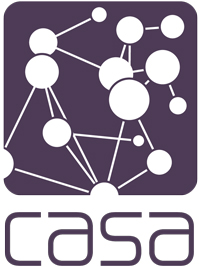Welcome
Jon Reades1 ![]()
![]()
The Foundations of Spatial Data Science (FSDS) module is an optional element of CASA’s MSc programmes and is intended provide an introduction to doing data science in Python for students who are new to programming or whose previous exposure to coding is fairly limited. The module seeks to enable students to access, understand, and communicate data in a spatial context. FSDS is not about pushing buttons, but about using logic, programming, and your growing analytical skills to tackle real-world problems in a creative, reproducible, and open manner.
FSDS is not easy: in order to make the most of the module—and the foundation that it provides both for Term 2 modules on the MSc and for post-Masters employment—you will need to work hard. This does not mean cramming before each practical, it means practicing between practicals, doing the readings, and really watching the videos. UCL expectations for a Masters-level module is 150 hours of study time: there are 4 hours of timetabled activity per week, and about an hour of videos to watch before each workshop, leaving up to 100 hours of ‘self-study’. By implication, you should expect to spend about 1.25 hours/day studying for this module: reading, coding, and (above all) practicing.
In exchange for your hard work, there is a pressing need for analysts, planners, and geographers able to think computationally using programming, analytics, and data manipulation skills that are anchored in the needs of policy-makers, businesses, and non-profits. There is a severe skills shortage in this domain across all sectors and, consequently, significant opportunity for those who can ‘make sense’ of data+code.
Acknowledgements
While this module in indebted to both feedback from students and colleagues over the years, several people played a particularly outsize role in my thinking and deserve special acknowledgement:
- Dani for help with Docker, geopandas, and any number of other new tools with which I’ve had to familiarise myself.
- Andy for somehow knowing about all kinds of new web apps that I could use to support the module.
- The Geocomp team at King’s College London, who supported my hare-brained scheme to teach Geography undergrads to code and offered all manner of useful feedback on what we could/could not feasibly cover.
Footnotes
The Bartlett Centre for Advanced Spatial Analysis↩︎
